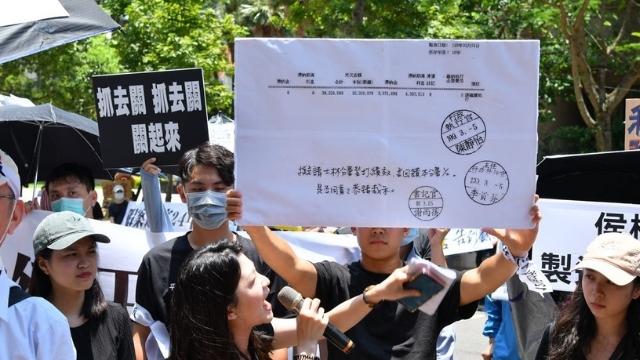11/25/2021GIUSEPPE CICOGNA A+ | A-
Much more than a simple tax or monetary question is a stake in the Tai Ji Men case.
by Giuseppe Cicogna*
*A paper presented at the webinar “Witnessing for Tolerance: Scholars, NGOs, and the Tai Ji Men Case,” co-organized by CESNUR and Human Rights Without Frontiers on November 15, 2021, on the eve of the International Day for Tolerance.

I am involved in promoting intercultural and interreligious dialogue within the FEDINSIEME Committee of Torino, Italy. I am the director of this organization, born from an idea of attorney Francesco Curto, who is the president of FEDINSIEME. Our aim is to promote the dialogue between different cultures and different religions in a new way that some internationally well-known sociologists who know us have dubbed “cooperative ecumenism.” Exponents of various cultures and religions meet to carry out projects and events aimed at the dissemination of knowledge, intended for a general audience and not only for a few specialized insiders.
Carrying out these activities, in 2019, I had the pleasure and privilege of meeting Dr. Hong and the Tai Ji Men movement in Torino. Tai Ji Men is a movement that spreads throughout the world a culture of peace, a goal that I, and the committee FEDINSIEME I represent today, fully share and promote.
We are well aware, and other speakers today are discussing this point, that these paths are never without obstacles. The judicial problems of Dr. Hong and the Tai Ji Men movement are an example of this.
Going into the merits of these judicial events, I can only summarize what was said in the previous webinar of this series by Francesco Curto, who is an attorney. It is evident, in fact, that the events in the Tai Ji Men case represent obvious violations of the fundamental legal principles of equality (i.e., the same tax treatment should apply under the same conditions and circumstances) and consistency (i.e., the legal and administrative system should not behave in contradictory ways).
Taiwan certainly has a legal system that, not being a lawyer myself, I would define as “complex,” and it is inevitable that some distortions will occur, yet a complex system, as such, must be able to self-correct itself and solve its problems. This comment, however, presupposes good faith; and perhaps in this case on the part of the Taiwanese institutions what is missing is precisely the good will to bring the case of Dr. Hong and the Tai Ji Men movement to a solution.
If I should comment on some of the details of the case, I find it in fact paradoxical how, with the exception of 1992, from 1991 to 1996 the money offered to Dr. Hong through the “red envelopes” was considered a donation and, therefore, subject to a certain tax regime (of exemption), while for 1992 the gifts given through the same ritual practice were considered in a different way and, therefore, subject to a different regime. The inequality is evident.
This has been justified by the fact that a decision (issued in 2006) of the Supreme Administrative Court regarding payments made in 1992 is final. However, it has been contradicted by other legal decisions, and the contrast should be solved.
As Italians would say, among two contradictory statements “only one sentence can be true”: either that the gifts in the red envelopes are tax-exempt, or that they are not tax exempt. The Taiwanese institutions must reconcile the contradictions on the matter, and decide which one of the two interpretations they consider correct regarding the donations received by Dr. Hong and the Tai Ji Men movement. A legal and administrative system cannot suffer from a bipolar dysfunction, considering one day the gifts in one way and another day in in a different way. Let the inequality and inconsistency be remedied!
If, however, nothing has been done to date to rectify the situation, one can suspect that the legal and administrative case was just a tool to reach another goal, discrediting Tai Ji Men and Dr. Hong in the eyes of the public opinion.

If this is the case, then Tai Ji Men and Dr. Hong do well to draw public attention to their case, and explain what the truth of it is. Moreover, this kind of activity, I mean attracting domestic and international public attention on the Tai Ji Men case, should be helpful in getting the Taiwanese institutions to act (assuming they have the corresponding political good will) to remedy the inconsistencies and inequalities I mentioned earlier.
I would like to tell Tai Ji Men and Dr. Hong: please do not abandon this fight. Many internationally renowned experts are speaking out in your favor and others, I am sure, will join them in the future and support you.
If this is part of a slander campaign against Tai Ji Men and Dr. Hong, it means that there is much more at stake; therefore, I urge you to continue your fight with even greater vigor.
What is at stake is not only a question of money, but also, and more importantly, your possibility to promote a culture of peace in the world with your heads held high, free from the sword of Damocles of legal and administrative prosecutions, proudly marching throughout the world as “good citizens,” clearing your good name and receiving all the honor and respect you deserve.
I hope with all my heart to meet Dr. Hong and the Tai Ji Men movement again, and perhaps having the pleasure of working together to promote the values of a global society based on peace. A society of peace is not a society without conflicts, but a society that knows how to solve its problems in an enlightened way.
Source: Bitter Winter
